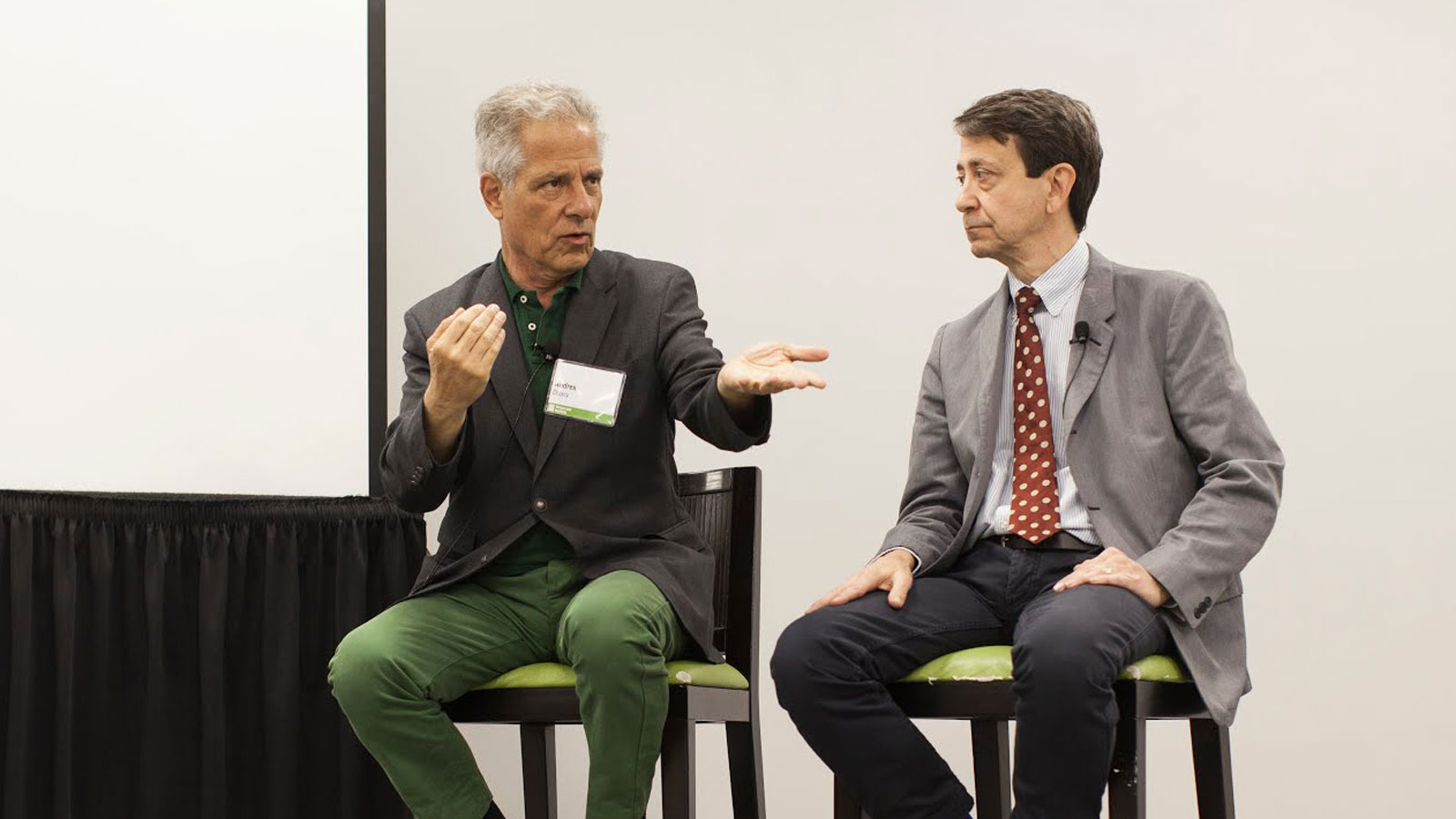
Going ‘lean’ to build better communities
Photo: Andrés Duany, partner at Duany Plater-Zyberk & Co. in Miami, left, and Hank Dittmar, former chief executive of The Prince’s Foundation in London. Courtesy of Urban Land Institute.
Developers from around the world took part in discussions on small-scale projects to revitalize urban neighborhoods last week at the Hilton Miami Downtown.
That was the focus of the Urban Land Institute Small-Scale Developers Forum April 16-17. Several speakers championed the idea of making the development process more accessible and inclusive, especially to young and immigrant leaders seeking to build enduring value in their communities.
One central topic was “Lean Urbanism.” An introduction to the concept of what it means to incorporate the “lean” philosophy into a city was made by architectural planners and urban design strategists Hank Dittmar, principal at Hank Dittmar Associates and former chief executive of The Prince’s Foundation in London, and Andrés Duany, a partner at Duany Plater-Zyberk & Co. in Miami.
Duany said support from Knight Foundation for the Project for Lean Urbanism has made it possible for his team to equip people interested in improving their communities — experts and rookies alike — with the tools necessary to act on their visions.
“The idea for ‘lean’ was born two years ago on a tour that I took while I was visiting Detroit,” Duany said. “Instead of the usual tour depicting devastation, [my guide] showed me the archipelago of success that was happening in his city, and it was from this that we focused on incorporating the upside into everything.”
Duany said that in the last 30 years “absolute regulatory insanity” has become an international standard for both corporate giants and small businesses. In helping people to effectively navigate those new standards, Duany hopes to allow all people to take part in a dialogue on how to better build homes, businesses and communities.
“This is about setting back the clock,” Duany said, “It’s about thinking back to when you were 30 and restoring common sense to the process of starting a new business and engaging the community.”
Dittmar said that building “lean” has met opposition in certain areas, especially from single-issue advocates. In an effort to overcome these challenges, he said lean urbanism works to empower developers by allowing decision-makers to divorce themselves from overall project success. The result, Dittmar said, is that developers are able to overcome “anything that impedes common sense” decision-making process.
The act of stripping red tape from the process, however, is often misunderstood, Dittmar said.
“In no way is lean a way to ‘undo regulations’ or ‘exploit workers,’” he said. “That was the biggest surprise to me, that we would have to play down the cool factor to overcome [adversity] in an area.”
Dittmar said the Project for Lean Urbanism is litmus-testing cities that meet the criteria for scaling developments quickly, in-partnership with city leaders. After the city scans are complete, he said they will begin implementing projects across the United States.
“This idea is about bringing decision-making to the lowest possible level,” Dittmar said. “It’s about giving people hacks to fund workarounds that can really make things happen for a community in a big way.”
For more information on open-access development tools, visit leanurbanism.org.
Jenna Buehler is a Miami-based freelance writer.
Recent Content
-
Communitiesarticle ·
-
Communitiesarticle ·
-
Communitiesarticle ·


